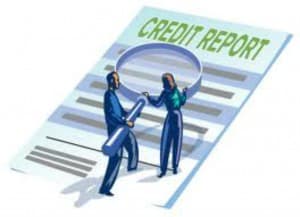
Bankruptcy and insolvency act: Introduction
I want to describe to you a very interesting case that was recently decided in the Court of Appeal of British Columbia, Randen v. HPCB-Online Ltd., 2018 BCCA 123 (CanLII). The bankrupt’s creditors applied to have the transactions reviewed under section I00 of the Bankruptcy and Insolvency Act, R.S.C. 1985, c. B-3 (“BIA”). One of the areas of contention was that the judge in the lower court found he could not rely on the bankruptcy trustee’s opinion of value in the circumstances.
The applicants, Shawn and Edvige Cody, were the principals of the bankrupt, Half Price Computer Books Ltd. (“Half Price”) and the applicant HPCB-Online Ltd. (“Online”). About ten days before Half Price was assigned into bankruptcy, Online bought roughly 10% of the book inventory of Half Price.
The application under s.100 was originally made by the bankruptcy trustee, and later transferred to creditors David Randen, The Innovative Alliance Inc., J.R. Trading Co. Inc. and Fairmount Books Inc. under section 38 of the BIA. The lower court judge found Online acquired property from Half Price at much less than reasonable market value. The lower court judge ordered Online and the Codys to pay back the difference which he established to be $287,000.
Bankruptcy and insolvency act: Section 100
Section 100 of the BIA. The section was repealed in 2009, but applies on transactions before then. The main purpose of that section was for reversing the effects of non-arm’s length transactions that reduced value from the estate of a bankrupt person or company.
Until 2009, s. 100 of the BIA provided:
“100 (1) Where a bankrupt sold, purchased, leased, hired, supplied or received property or services in a reviewable transaction within the period beginning on the day that is one year before the date of the bankruptcy event and ending on the date of the bankruptcy, both dates included, the court may, on the application of the trustee, inquire into whether the bankrupt gave or received, as the case may be, fair market value in consideration for the property or services concerned in the transaction.
(2) Where the court in proceedings under this section finds that the consideration given or received by the bankrupt in the reviewable transaction was conspicuously greater or less than the fair market value of the property or services concerned in the transaction, the court may give judgment to the trustee against the other party to the transaction, against any other person being privy to the transaction with the bankrupt or against all those persons for the difference between the actual consideration given or received by the bankrupt and the fair market value, as determined by the court, of the property or services concerned in the transaction.”
Bankruptcy and insolvency act: The questionable transaction
The brand-new company Online bought roughly 10% of Half Price’s stock, or 44,000 books. These books were clearly selected by Mr. Cody as the best-selling. Online paid $21,964.50 for these books, about $0.50 CDN for each publication. The books and records of Half Price, including an e-commerce website which Half Price created at its expense and was the property of Half Price, were copied and used by Online to aid in the sale of these publications at the instructions of Mr. Cody.
The Half Price sorting software and mailing software program that was later used to retail these books by Online, which software was the property of Half Price, was duplicated and taken or transferred to Online. Additionally, there was a claim that the goodwill of Half Price was made use by Online. There was no evidence that Online paid anything for the use of the software and goodwill.
Bankruptcy and insolvency act: The lower court’s first problem
The lower court found that Online paid conspicuously much less compared to fair market value. It must pay to the bankruptcy Estate for the benefit of the creditors which he determined to be $287,000. The lower court judge noted that this was not a case in which the trustee was driving the application. The trustee assigned the action to specific creditors.
Normally, the bankruptcy trustee would have to submit evidence to the court in a section 100 application as to the value of the property in question. Since the trustee had assigned its interest to specific creditors, there was no report from the trustee. The creditors said the value of the joint assets is close to $1.07 million. The lower court had to look at the trustee’s actions in determining what the trustee must have thought the value was.
The lower court acknowledged the need in s. 100 to accept the trustee’s viewpoint about the value, unless other values are confirmed. The court however discovered it could not depend on that viewpoint in this case. The first problem was that they were standing in the place of the trustee. The trustee had determined that the software and other assets was of no value. In addition, the trustee did not figure out that there was any kind of goodwill value to this.
Bankruptcy and insolvency act: The lower court’s second problem
The second problem was that Half Price could have moved the best publications to Online at the direction of the Codys. The remaining books, being 90% of the book inventory, sold for around the same value as the 10% of publications. Though this is not entirely determinative of worth, it shows that the inventory, software and goodwill was not as valuable as these creditors represented to the lower court..
The BIA required the lower court judge to accept the trustee‘s viewpoint as to the value, or in this situation the point of view of those creditors, unless other values can be confirmed. The lower court considered the trustee’s activity when the bankruptcy first happened, that those assets had no value. The lower court found that it could not rely on any trustee viewpoint on worth.
Bankruptcy and insolvency act: The Court of Appeal
The Court of Appeal confirmed that a trustee in bankruptcy is an officer of the court and has an obligation to offer all relevant facts to the court in a dispassionate, non-adversarial fashion. It went on to say that the creditors do not have the same responsibilities. They got the right to pursue the proceedings in their very own passionate way. The Court of Appeal went on to say that it was open to the court to decline the trustee’s opinion on the evaluation of a fair market price.
The Court of Appeal finally concluded that although the Court did not have to accept the trustee’s opinion of value, there was insufficient evidence for the lower court judge to place a value. So the Court of Appeal ordered a new trial in the lower court. Now both the creditors, and certainly the trustee, will have to submit evidence about what the fair market value was, in their respective opinion. That way, the lower court will be able to rely on experts, an officer of the court and real evidence.
Bankruptcy and insolvency act: The licensed insolvency trustee
Licensed insolvency trustee is the relatively new name for a bankruptcy trustee. Is your company experiencing financial problems? Are you, or somebody you care about, experiencing personal financial problems?
Bankruptcy is the last thing we try to do for a company or person in financial difficulty. If caught early enough, we can get involved in a turnaround situation for your company to keep jobs and value. We also carry out debt settlement plans for people.
If you’ve personally fallen victim to money mistakes and are in pain and stressed out, it’s time for professional help now too.
The Ira Smith Team knows that you are worried because you are facing significant financial challenges. Your business provides income not only for your family. Many other families rely on you and your company for their well-being. The stress placed upon you due to your company’s financial challenges is enormous. We understand your pain points.
Contact the Ira Smith Team today. We know how to solve both corporate and personal financial challenges, remove your pain and put things back on a healthy path. Contact us today for your free consultation so that we can save your company, Starting Over Starting Now.











